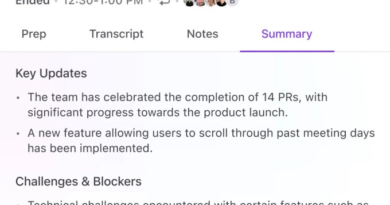X to allow paid political ads, lifting Twitter’s earlier ban
X this week confirmed it’s lifting its ban on paid political ads — a move it committed to earlier this year, shortly after Elon Musk took over the social network previously known as Twitter. The company had originally banned such ads back in 2019 under then-CEO Jack Dorsey’s management, claiming at the time that “political message reach should be earned, not bought.”
The company had defined the banned content as “content that references a candidate, political party, elected or appointed government official, election, referendum, ballot measure, legislation, regulation, directive, or judicial outcome,” it said.
The ban also encompassed a broad range of content, including any ads that appealed for votes, solicitations of financial support and advocacy for or against any of the above-listed types of political content.
In an announcement on Tuesday, the company now known as X said it would begin to allow political advertising as part of its efforts to build on its commitment to free expression. In reality, X is likely in need of the ad dollars political advertising brings, given that X’s U.S. ad sales had dropped by 59% year-over-year, The New York Times reported in June.
X says that it will continue to apply specific policies to paid political ads in the U.S., which will include the promotion of false or misleading content or false or misleading information “intended to undermine public confidence in an election.” This, in theory, would mean viral conspiracies, similar to #sharpiegate or #stopthesteal from elections past, would not be permitted under X’s new rules. It remains to be seen what action X will take against such measures, however.
The company also says it will host a global advertising transparency center accessible to anyone who wants to review the political posts being promoted on X. Meta already offers a similar feature. In addition, X says there will be a “robust” screening process in place to ensure that only eligible groups and campaigns will be able to advertise. It did not go into detail on this.
The announcement also referenced other measures to protect the discourse on the platform, including a Civic Integrity Policy that’s meant to offer an extra layer of protection for a limited period of time before and during an election. But X is loosening its grip on what can be said, it seems, noting that it plans to update this policy so it’s only tackling harmful content, like voter intimidation or deception, while not “censoring public debate.”
Plus, X says it will add publicly visible labels to any posts identified as potentially violating the Civic Integrity Policy, to allow X users to know when their reach has been restricted.
Musk had said in January it intended to expand political advertising after first relaxing its policy for cause-based ads in the U.S., like those that aimed to raise awareness about voter registration, for instance.
“Moving forward, we will align our advertising policy with that of TV and other media outlets,” he wrote on Twitter back on January 3. “As with all policy changes, we will first ensure that our approach to reviewing and approving content protects people on Twitter,” the exec said.
X’s announcement also referenced other means of platform moderation, including the crowd-sourced fact-checking feature Community Notes, which is now available globally in 44 countries and open sourced.
The company said that people on average are now 30% less likely to agree with the substance of a post after reading a Community Note fact-check about it and they’re less likely to reshare it. X added it will allow Community Notes on all promoted posts, including paid political ads.




